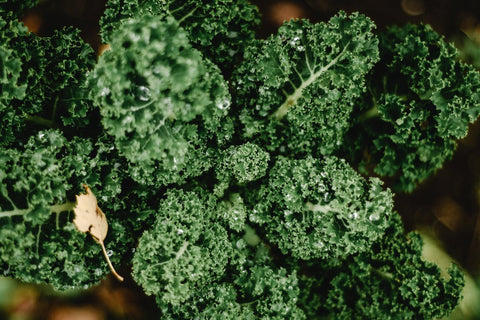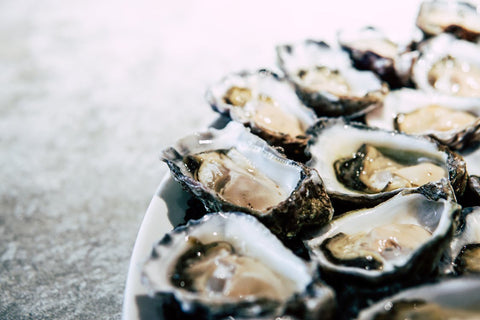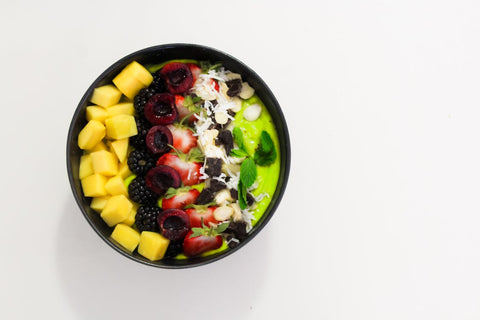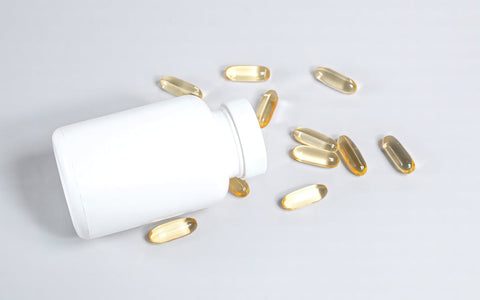How would your life change if you lost your vision?
Sight is one of our most valued senses. From the joy of reading or watching a movie to essential day to day tasks such as driving, good eyesight plays a crucial role in almost every aspect of the way we live. While age, genetics, and environmental factors can influence your vision, your dietary choices can also have a significant impact.
Did you know that, just as eating heart-healthy foods can improve your cardiovascular health, certain foods can also support and enhance your eye health? Read on to learn more about the role of nutrition in maintaining good eyesight throughout life.
The Role of Antioxidants

Your body is constantly under attack from dangerous compounds called free radicals. These molecules can cause premature aging and are also associated with various serious and chronic diseases.
Antioxidants are compounds that combat free radicals. Vitamins C and E, in particular, have shown to decrease the risk of eye problems such as cataracts and age-related macular degeneration (AMD).
Vitamin C can be found in citrus fruits such as oranges and lemons as well as many other fruits and vegetables including strawberries, broccoli, and bell peppers. Nuts and seeds, especially almonds, sunflower seeds, and hazelnuts, are great sources of vitamin E.
Lutein and Zeaxanthin: The Dynamic Duo

Like Vitamins C and E, lutein and zeaxanthin are both antioxidants. These two powerful compounds are found in the retina, and they protect the eyes from harmful high-energy light waves such as the ultraviolet rays in sunlight. Some evidence also suggests that they may reduce the risk of chronic eye diseases.
Leafy greens such as spinach, kale, and collards are the best sources of lutein and zeaxanthin. They are also present in many other vegetables including peas, corn, and broccoli.
Omega-3 Fatty Acids

Omega-3 fatty acids are essential healthy fats that the body cannot make, which means they must be obtained through your diet. Omega-3s play a role in vision development in infants, but their importance to eye health does not stop there.
Some studies suggest that Omega-3s may help to prevent macular degeneration and assist in the proper drainage of intraocular fluid from the eye, which decreases the risk of problems such as high eye pressure and glaucoma. Omega-3s can also help manage dry eye conditions.
Omega-3s are found in fatty fish such as salmon, mackerel, tuna, and sardines. They can also be found in plant foods such as flaxseeds, chia seeds, and walnuts.
Zinc: The Protector Mineral

Zinc is a mineral that plays many important roles in the body, including boosting immune function. In the eyes, it helps to maintain the health of the retina and cell membranes as well as the eyes’ protein structures. Experts sometimes recommend zinc supplements for those who are at risk of AMD.
Good sources of zinc include oysters, beans, seeds, and fortified foods.
Vitamin A: The Vision Vitamin

Did your parents ever tell you that carrots would help you to see in the dark? Turns out there is some truth to this old saying. A deficiency in vitamin A (which is found in beta-carotene rich foods including carrots) can lead to night blindness. This is because the retina contains rhodopsin, a protein that helps us see in low-light conditions, and vitamin A is essential for producing it.
Foods rich in beta-carotene, which the body converts to vitamin A, include carrots, sweet potatoes, spinach, and kale. Animal sources of vitamin A include liver, dairy products, and eggs.
Eating for Eye Health: Dietary Tips

Now that you know about some of the most important vitamins and minerals for keeping your eyes healthy, here are some of our top dietary tips to help you stay on track.
- Build a colorful plate: Incorporate a variety of colored fruits and vegetables into your diet to ensure that you are consuming the diverse range of nutrients beneficial for eye health.
- Limit processed foods: Highly processed foods often lack essential nutrients and may be high in sugars and unhealthy fats, which can be detrimental to health.
- Stay hydrated: Drink plenty of water as well as consuming foods with a high water content. This aids in keeping your eyes hydrated as well as flushing out toxins from the body.
- Prioritize whole grains: Opt for whole grains such as quinoa, brown rice, and whole wheat bread over their white counterparts. They have a lower glycemic index, which has been linked to a reduced risk of AMD.
Have Questions About Supplementation for Eye Health?

